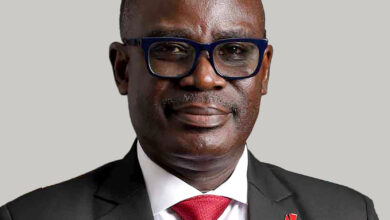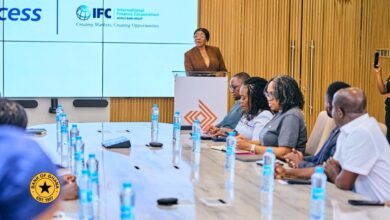MGA Dialogue Series Urges Business Leaders to Rethink Strategy in a Digital-First Economy

Business leaders must urgently embrace digital transformation, data-driven decision-making, and collaborative innovation if they are to remain competitive in today’s rapidly evolving global marketplace, experts have warned during the latest edition of the MGA Dialogue Series.

Themed ‘Empowering Leaders for the Digital Future,’ the virtual session brought together executives, entrepreneurs, and leadership professionals across the continent. It featured thought leaders such as Dr. Jeff Bassey, a renowned leadership strategist, and Mr. Michael Abbiw, CEO of MGA Consulting Ghana and President of the Chartered Institute of Marketing, Ghana (CIMG).
Opening the session, Mr. Abbiw challenged organizational leaders to shift from legacy approaches to leadership and strategy, warning that slow adaptation in today’s high-velocity economy could prove fatal.
“In a fast-paced and volatile business environment, leaders must be agile. Traditional ways of doing business no longer suffice,” Mr. Abbiw said. He underscored the commercial impact of data and analytics, citing McKinsey research which shows that data-led companies are up to 23 times more likely to acquire customers and significantly more likely to outperform competitors financially.
He further emphasized that digital transformation is not the sole responsibility of IT departments or C-suite executives but a collective mandate that must be embedded across all levels of an organization—from strategy formulation to frontline service delivery.
“Digital literacy and innovation must be part of your organizational DNA,” he noted.
Dr. Jeff Bassey, who delivered the keynote address, urged leaders to adopt an “outside-in” leadership model—an approach that prioritizes external market signals such as evolving customer preferences, technological disruptions, and competitive shifts when shaping internal strategy.
According to Dr. Bassey, the average thriving business today is operating on its fourth to seventh business model. “Business models must evolve continuously. Static models are liabilities in today’s digital economy,” he said.
Highlighting technology as a non-negotiable enabler of growth, Dr. Bassey noted, “Technology is not here to replace people—it is here to elevate performance. Even with reduced working hours, productivity can rise with the right digital tools.”
He emphasized four strategic imperatives for modern organizations: agility, customer-centricity, innovation, and collaboration. He pointed to cross-industry partnerships—such as telecom firms selling insurance—as examples of joint value creation driven by digital platforms.
“Strategic partnerships are no longer optional; they are essential. In today’s interconnected world, businesses cannot thrive in silos,” Dr. Bassey stressed.
On organizational culture, Dr. Bassey cautioned against relying solely on traditional hierarchies or seniority. “What defines great leadership today is not experience alone, but the ability to learn, unlearn, and relearn,” he said.
He called on African businesses to embed continuous learning and situational analysis into their strategic planning cycles, ensuring they remain aligned with both customer expectations and industry trends.
Participants left the dialogue with a renewed sense of urgency and clarity on how to align leadership with the demands of a digital-first future. Many echoed the sentiment that speed, adaptability, and strategic thinking will increasingly define market leadership in Africa and beyond.
The MGA Dialogue Series, hosted monthly by MGA Consulting Ghana, continues to serve as a high-impact platform for leadership development, business transformation, and policy engagement across the continent’s corporate and entrepreneurial sectors.




